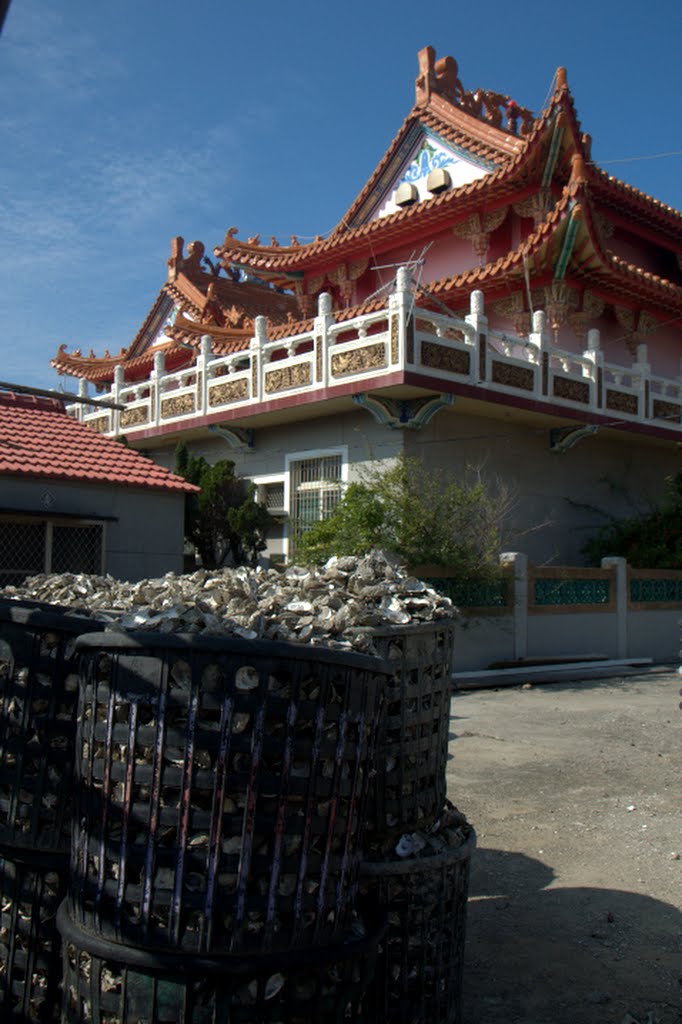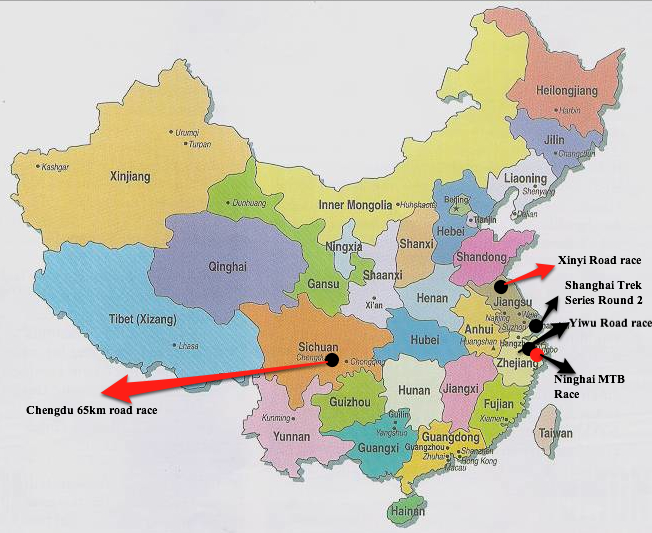For a country that has traditionally relied on cycling as a mode of transportation, the sport of cycling is in the beginnings of a boom. It is currently at the stage where Taiwan was five years ago – now cycling as a sport has caught on like wild-fire with 1000s of competitors turning out across all the categories. It is evident that there is a steady growth in cycling as a sport with Chinese increasingly coming out to take part in competitions throughout China. With more experience and exposure to higher quality racing, the Chinese will be a force to be reckoned with in a few more years. Currently, China has one rider, Li Fuyu, in the Pro-Tour peloton and this will change as the Chinese become more serious with the sport of cycling and devote more funding towards the development of young riders. You can already see some raw talent emerging at some of the bigger domestic races, but the racing still has a lot of areas needing improvement.
Having spent some time racing at the Pro 1,2 level in the U.S and A -grade racing in New Zealand, most of the Chinese races would resemble the level of category 3 or a very good category 4 field. There are a smattering of riders that would hold their own at the Pro 1,2 level and high category 3.

Young talented Chinese rider wins the F1 Circuit race
Some of my observations:
There is a reluctance to take charge at the front of the peloton and roll through smoothly in a pace-line. Usually, there is no pace-line to speak of.
Riders cornering are worried about what is behind them, rather than focusing on the front and maintaining a good speed and line. This leads to sketchy riding and it is when crashes are more likely to happen.
There seems to be a mentality of chasing and then sitting up when the break or front rider is caught, causing periods of slow riding to follow before the next inevitable attack would be launched. The pattern is then repeated. It happens all over the world in races, but in China it happens all the time. This is what you call “negative” racing. Even when a break gets away, it is hard to get riders fully co-operating with each other for the success of the break. It might be in part due to the concept of “face” in China, Chinese riders may be afraid to work too hard in the event of getting dropped, losing in the final sprint or simply because they believe that the break will not succeed – and if they commit too much now, when the peloton makes the catch they will not have the legs to keep up – thus losing face in the eyes of the fellow competitors and spectators.
Teams do not take control of the front by riding in an ordered and smooth fashion. One of the observations I recently made, was that a large teams whose team-mate came back from the break up the road, created a series of failed attacks in the hopes of rejoining the break. Rather than amassing on the front they just tried to launch their riders one at a time up the road in the hope that one could ride back to the break on their own. If the break was close enough, this might work. However, in this instance, what was needed was team-work – riders working in a smooth frequent rotating pace line. This did not happen, so for most of the race the speeds were fluctuating wildly, slowing down when the front rider had run out of steam and then giving someone an opportunity to attack. This just starts another flurry of movement and the peloton zips along at a high speed, thanks to the riders attacking. No attacks = slow pace. The surging nature of racing here can also open the door to crashing. Generally speaking, the higher the pace of racing the more strung out and safer it is.
If you have any of your own personal experiences from racing here in China or in other Asian countries, please leave comments to this article. I would welcome perspectives from both sides.
Stay tuned for more postings on the status of cycling in China as a sport.









Hi Daniel,
great article. Looking forward to seeing more articles! S
Hi.
I may be going over to China to work for a 3 year contract. Can you give me any information about how you go about getting set up to race locally? Do you have to use a local license or do you need an international license from your home country?
Thanks, Adam.